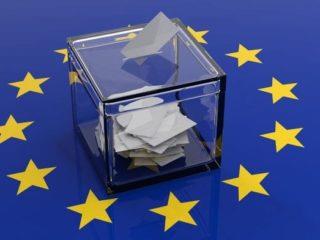By N. Peter Kramer
According to a recent report* published by the European Council on Foreign Relations (ECFR), there is a distinct possibility that anti-EU parties could form the second-largest group in the European Parliament after the elections the end of May.
It characterised the ECFR, a think tank for the most part existing of Europhiles, tars EU critical/sceptic parties and anti-EU parties with the same brush. Not wondrous, because for Europhiles the rule is, who is not completely on our side is completely against us. Some people call it the Verhofstadt doctrine, named after the often-hysterical super-Europhile leader of the liberals.
The ECFR report asserts that ‘everything will depend on the coalitions that mainstream (read: unconditionally pro-EU) parties form between one another, and on how they work to disrupt the formation of anti-European coalitions in the next parliament’. The ‘grand coalition’ between the center-right (EPP) and the Socialists (S&D) will lose its majority for the first time, down to 43% of the seats.
As the new elected EP will include three overlapping groups, Left with 34%, Right with 32% and anti-EU parties with 35%, the pro-EU parties need to think beyond traditional political families, concludes the ECFR. It is crucial that they recast themselves as symbols of change, in an environment in which anti-EU parties will portray them as defender of the status quo in the EU.
Pro-EU parties can no longer prevaricate and must expedite their attempts to think beyond traditional political families in the way they battle for seats in the EP, according the ECFR.
Listening at the mainstream political parties, you can hear they share seriously the ECFR concerns, but looking at them, you see that they are exclusively busy with tackling each other in the race for delivering the President of the European Commission. But who is surprised by that?
*’Kingmakers of the mainstream: predictions for the European Parliament elections’ is a part of the ECFR’s project ‘Unlock Europe’s Majority’.






